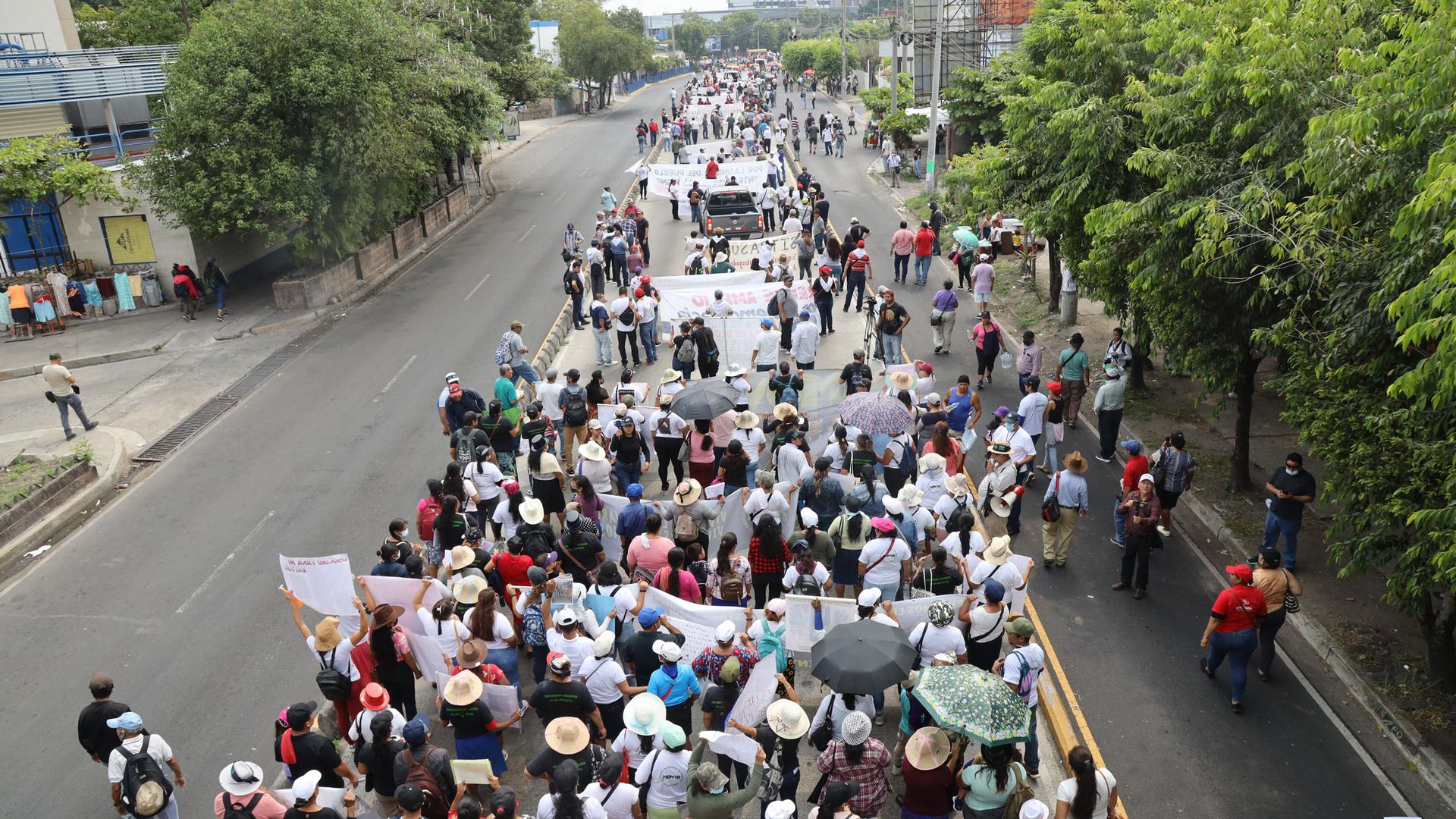On a recent day, Juan Emanuel Arauco sat with his wife and daughter on a park bench in the lush, green oasis of Cuscatlán Park near downtown San Salvador, El Salvador, as other families picnicked on the grass or leisurely strolled the paths.
“Before, because of the situation we lived in, we didn’t feel safe to go out,” he said, ”but now we can come out and really take advantage.” In just about a year, El Salvador has gone from one of the most dangerous countries in Latin America to one of the safest. The homicide rate dropped by over half last year.
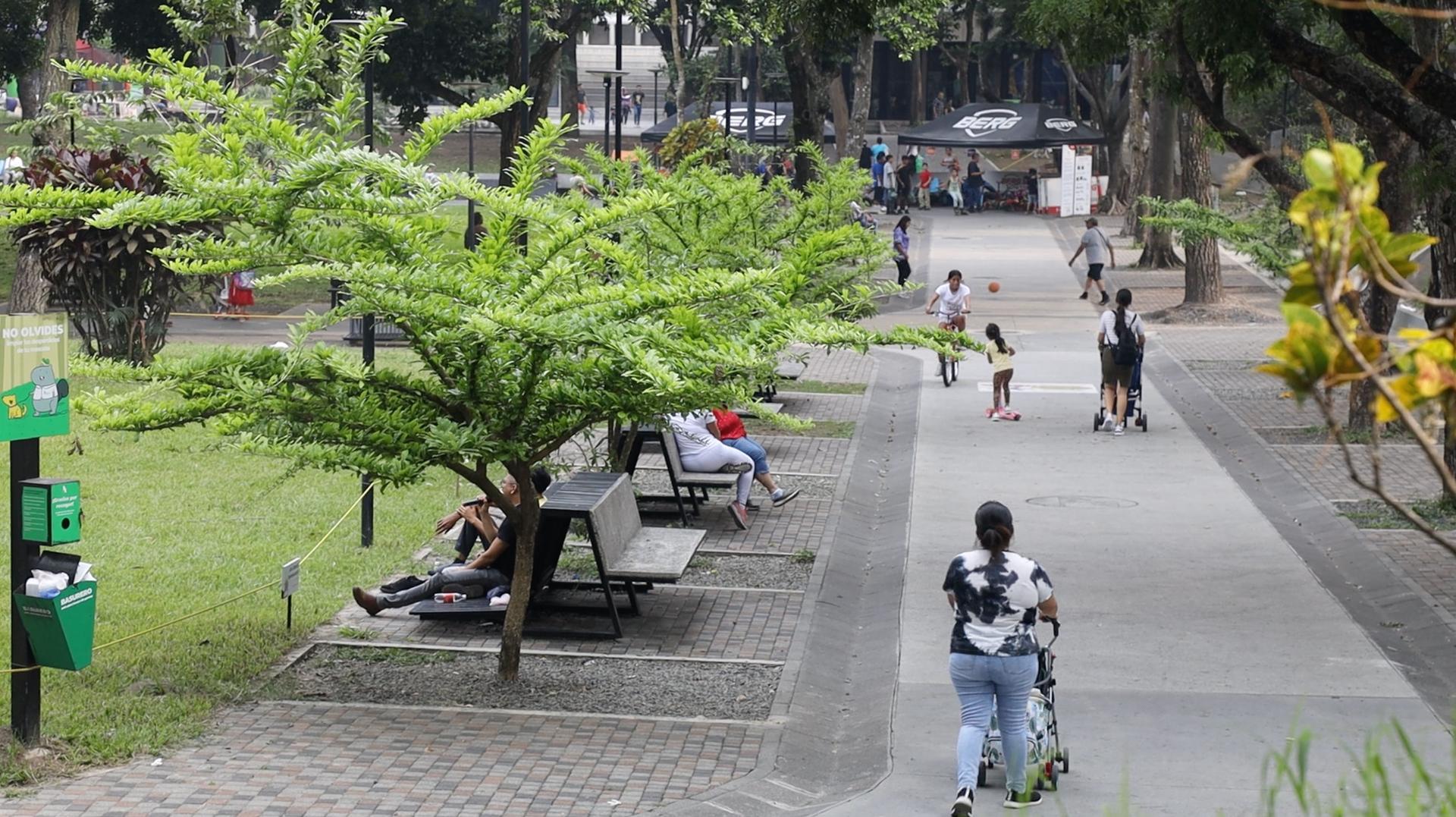
President Nayib Bukele is the man responsible for the astounding change. Since coming into power in 2019, he has ushered in an unprecedented crackdown on gang-related activities. But thousands of people over the last year have also been unjustly imprisoned under the recent suspension of civil liberties.
“Bukele has done things that no one else could,” said 75-year-old Isabel Mejia. She’s run a clothing stand near the city center for more than 30 years. Until recently, she had forbidden her grandchildren from visiting her there, because she was afraid they could get hurt.
“We were scared. There was so much pressure. You had to pay a cut of your profits to the gangs. I saw terrible things here,” she said. “I still haven’t been able to get them out of my head. Now, we are so much better.”
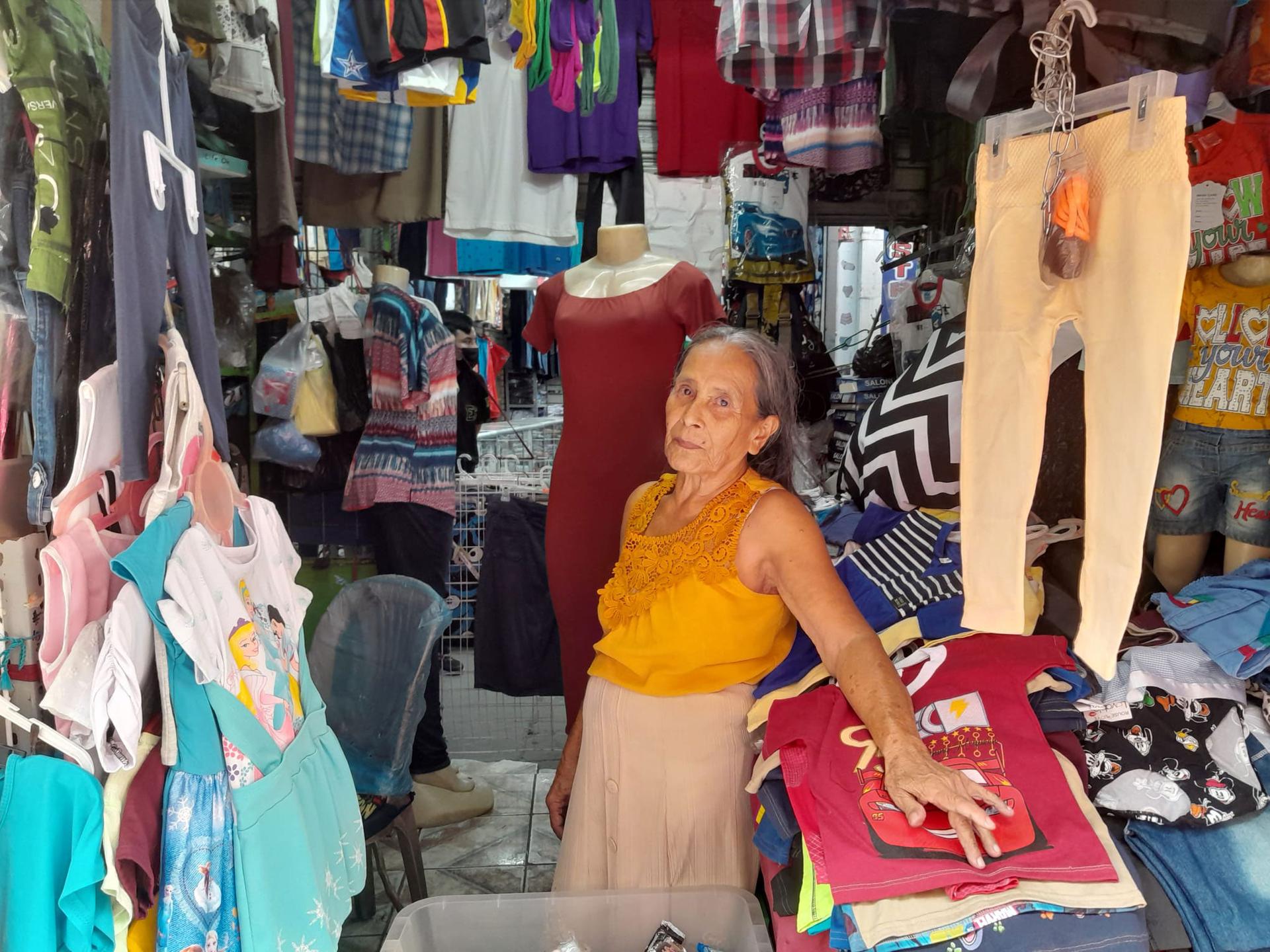
Every afternoon now, downtown San Salvador is packed with people, shopping, strolling and going to cafés. It’s as if the couples and families are stretching their legs after being cramped for a long time — reoccupying a space that had been largely off limits to them for years.
Blanca Ortiz, a hair dresser in the city center, has lived near downtown for all of her 25 years. She said there are more jobs, more tourism and far more security.
“I never would have imagined this change,” she said. “Not with the way things were.”
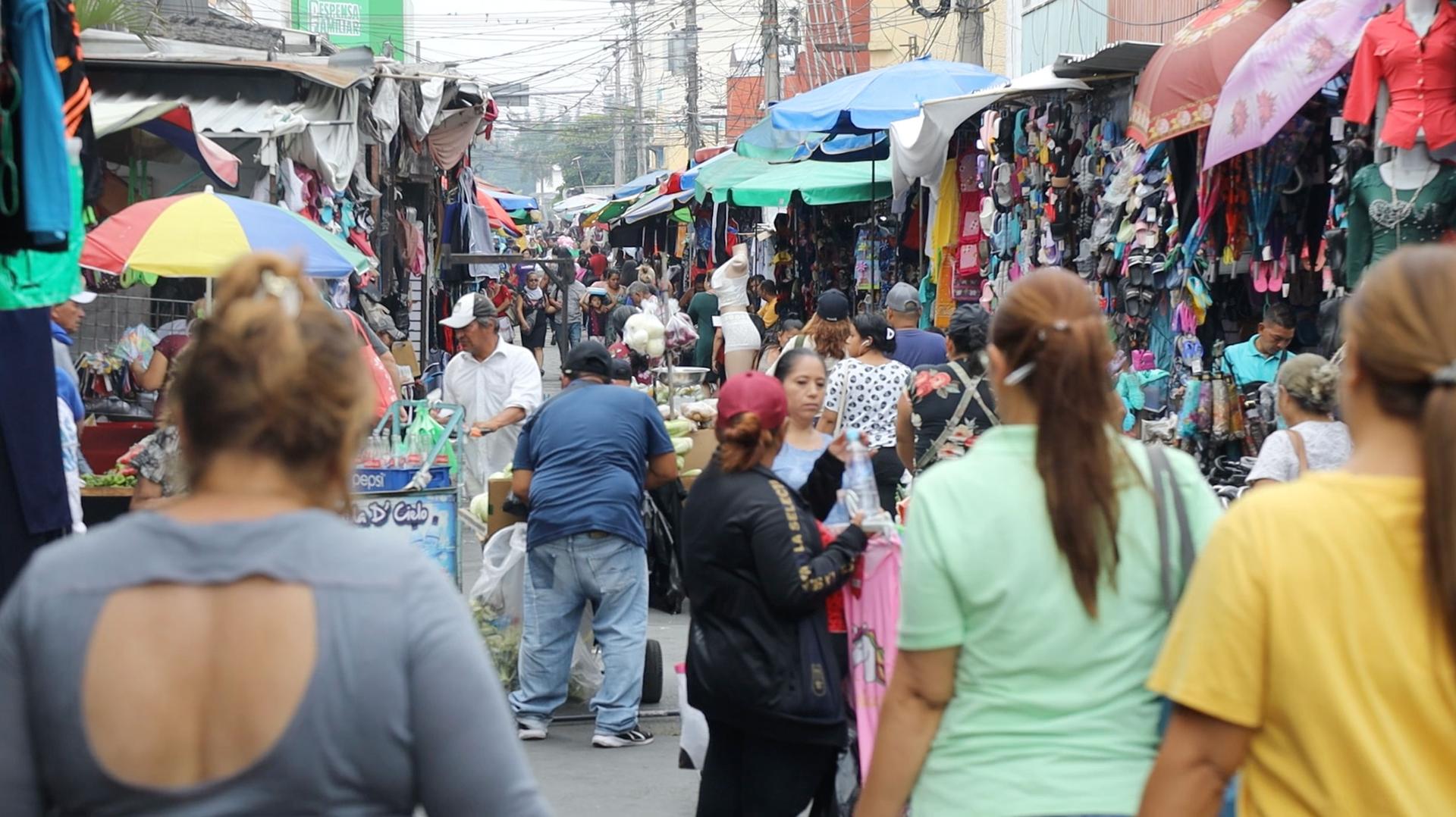
Bukele achieved this miraculous turnaround with an iron-fist tough-on-crime policy. In March 2022, he instituted what’s called a state of exception, which limited constitutional rights, enabling him to crack down on the country’s gangs. He’s jailed over 65,000 people over the past year, built a new mega-prison, and packed it with former gang members.
He tweeted recently, “Strong men create good times.” On May 1, he announced that April was the safest month in the history of the country, with zero murders.
“There is no question about the success of this war on the gangs,” Bukele said in March, in a video released on his YouTube channel to mark the one-year anniversary of the state of exception. “It’s the most popular government project in the world.”
But the state of exception has also wreaked havoc on the country’s human rights. International organizations have called for it to be repealed. Thousands of family members say their husbands, sons and brothers are unjustly imprisoned; that they were picked up, and are being held without due process. Family members haven’t heard from them since they were jailed.
On May 1, two large marches weaved across the capital, San Salvador, in commemoration of International Workers Day. One, in support of Bukele. The other, led by family members of the detained. Many of them carried signs and pictures of their loved ones. Thousands were in the crowd.
“They took them alive. We want them back alive,” they chanted.
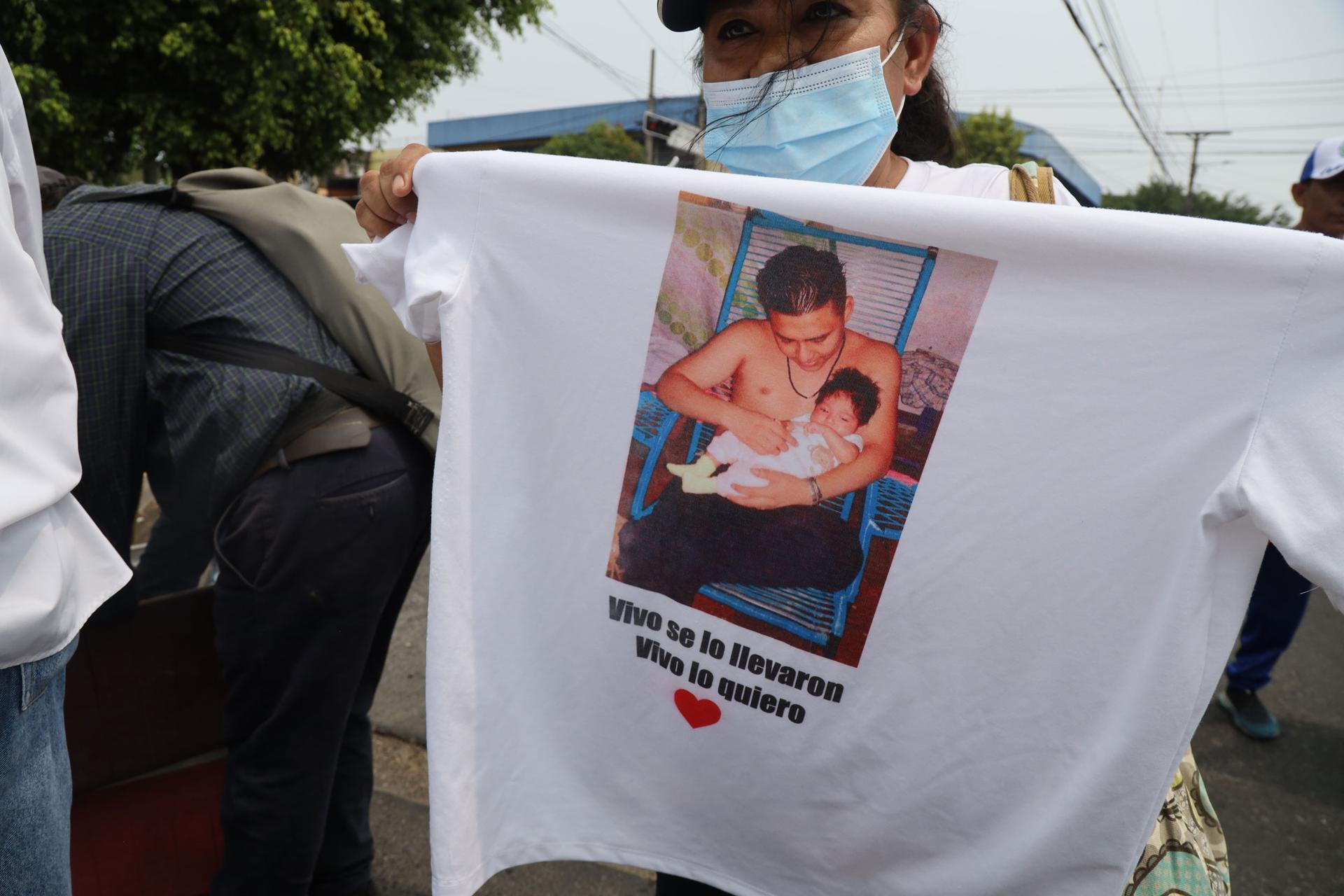
According to organizations representing family members of the detained, more than 200 people have died in jail over the last year. Those imprisoned are being held indefinitely.
“They took my husband on Feb. 1. He’s a hard worker and he’s never been in trouble with the law,” said Vanessa Beatriz Alfonso, in a red flowered dress, as tears streamed down her cheeks. “He has diabetes. We have a son who’s 2 and ½ years old. It’s been three months.”
She said neither she nor her lawyers have been able to speak with him.
Her story is the same repeated again and again by wives, sisters and mothers.
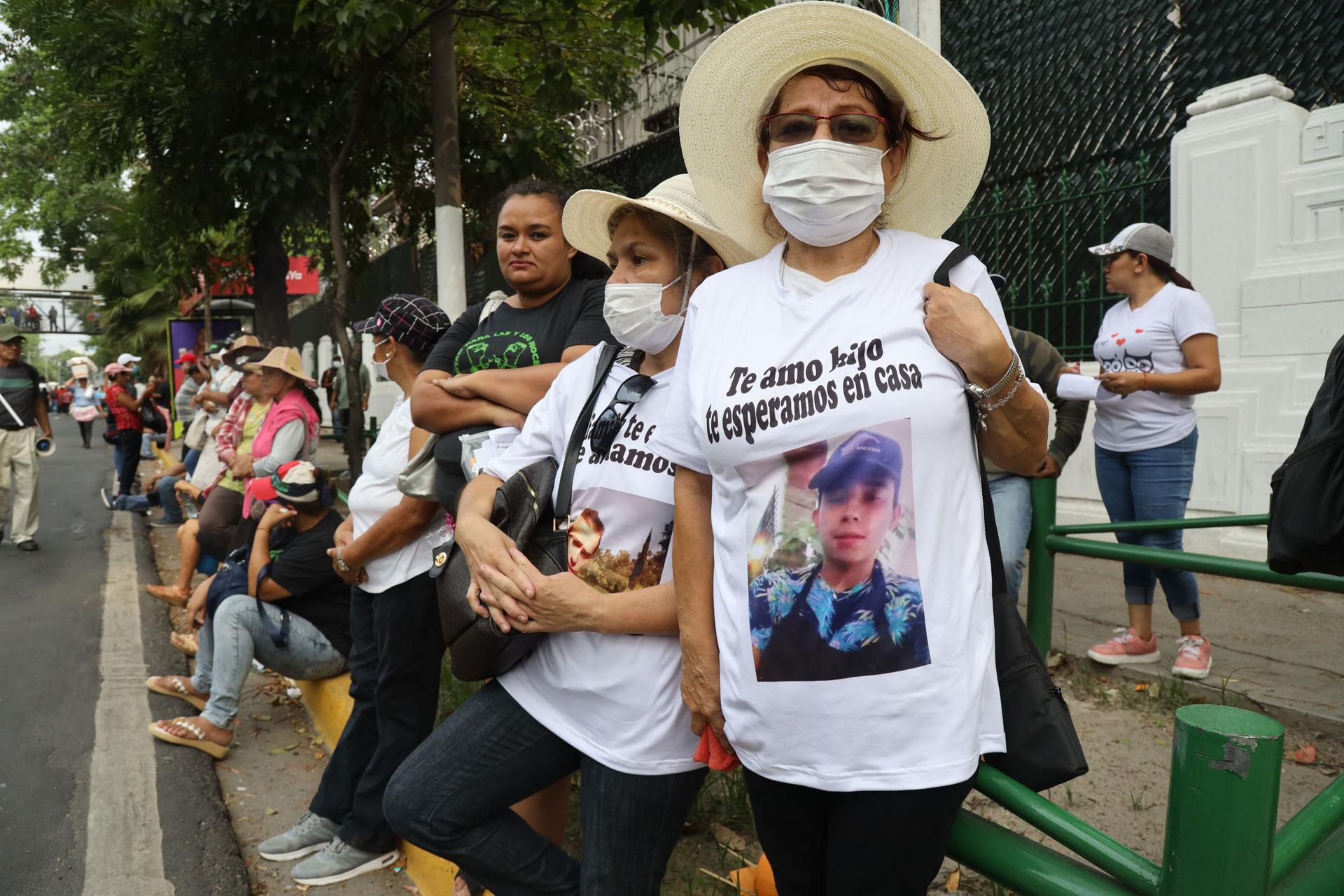
Leaders of the Movement for Victims of the Regime — a group founded last year by families members fighting for their loved ones in detention — say that as many as half of those detained and held over the last year are innocent. They say there is no end in sight.
Social and environmental organizer Pedro Cabezas said President Bukele’s security policies are likely clearing the path for his reelection next year.
“There is no denying that he has been very effective,” Cabezas said, “because the people in their communities have seen a real change. And he is sophisticated. He’s managed to build alliances with the oligarchy, the traditional political parties and the military.”
Presidents can only serve one term in El Salvador. But with a majority in the legislature and the country’s top court, many believe the president’s path will soon be cleared for reelection.
